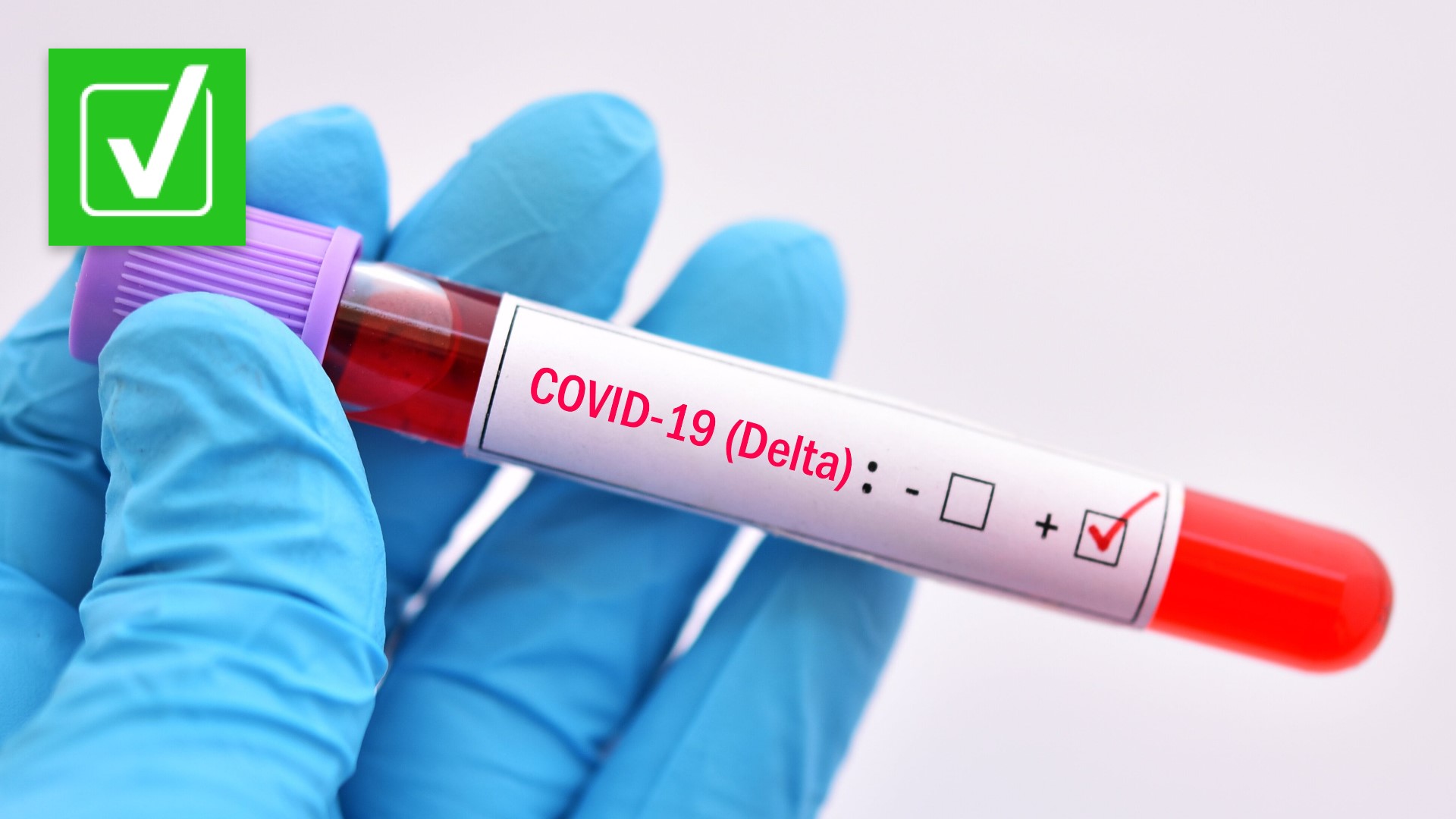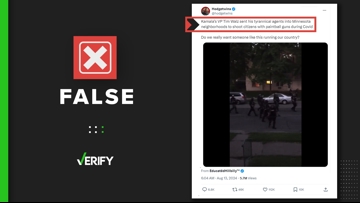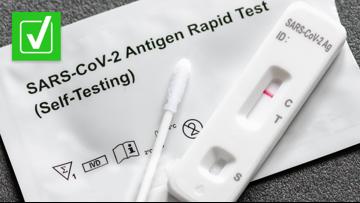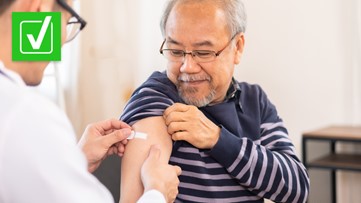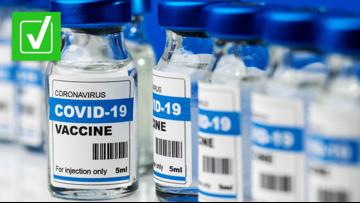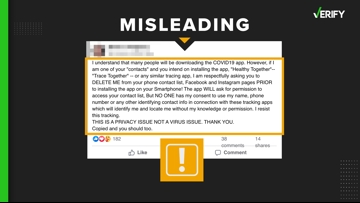On June 22, Dr. Anthony Fauci said during a COVID-19 press briefing at the White House that the Delta variant “is currently the greatest threat in the U.S. to our attempt to eliminate COVID-19.” However, he also said the COVID-19 vaccines currently authorized for emergency use in the U.S. are “effective against the Delta variant.”
Now, VERIFY viewer Ellen K. wants to know if she can pass COVID-19 to others if she is exposed to the Delta variant even though she has been fully vaccinated against the virus.
THE QUESTION
Can a fully vaccinated person exposed to the Delta COVID-19 variant transmit it to others?
THE SOURCES
THE ANSWER
Yes, a fully vaccinated person exposed to the Delta variant could transmit COVID-19 to others, but it is less likely for a vaccinated person to transmit it than an unvaccinated person.
WHAT WE FOUND
The Delta variant, or B.1.617.2, which was first detected in the United States in March 2021 just months after it was initially identified in India in December 2020, is listed as a “variant of concern” on the Centers for Disease Control and Prevention (CDC) website because the agency says it seems to spread more easily and quickly than other variants, which could potentially lead to more cases of COVID-19.
During a COVID-19 press briefing held in Geneva, Switzerland, on June 25, World Health Organization (WHO) director-general Dr. Tedros Adhanom Ghebreyesus said the Delta variant, which has been identified in at least 85 countries, “is the most transmissible of the variants identified so far” and “is spreading rapidly among unvaccinated populations.”
While current CDC data suggests that COVID-19 vaccines authorized for emergency use in the U.S. are effective and offer protection against most variants, the agency says it is still possible a “small percentage” of people who are fully vaccinated could get COVID-19 and transmit it to others if they are exposed to the virus in what the CDC calls “vaccine breakthrough cases.”
“While people who have been vaccinated are much less likely to get infected with the virus that causes COVID-19 and get sick, it will still happen in some cases. It’s also possible that some fully vaccinated people might have asymptomatic infections, meaning have a vaccine breakthrough infection but not have symptoms,” a CDC spokesperson told VERIFY by email. “Studies show that COVID-19 vaccines help protect people who are vaccinated from getting COVID-19 or getting severely ill from COVID-19, including reducing the risk of hospitalization and death and that fully vaccinated people can be less likely to spread the virus to others, even if they do get COVID-19.”
In May, the CDC updated its mask guidance and suggested that people who are fully vaccinated in the U.S. “can resume activities without wearing a mask or physically distancing, except where required by federal, state, local, tribal, or territorial laws, rules, and regulations, including local business and workplace guidance.” However, during the June 25 WHO press briefing, Dr. Maria Van Kerkhove, the COVID-19 technical lead for WHO, urged people, fully vaccinated and unvaccinated, to remain vigilant in protecting themselves against COVID-19 infection.
“When we take measures to prevent transmission, we take measures to prevent transmission against droplet and aerosol and airborne,” said Van Kerkhove. “This is why I say, know what you can do to keep yourself safe. Taking those measures. Wearing that mask. Making sure you have clean hands when you put on and you take off a mask. Make sure that if you are indoors, that you have good ventilation.”
Dr. Bruce Aylward, senior advisor to the WHO director-general, followed up Van Kerkhove’s warning, making it clear that people who have been fully vaccinated should “continue to play it safe because you could end up as part of a transmission chain.”
“The first message we want to be careful about is saying ‘once you’re vaccinated you can just go ahead and do whatever.’ Yes, you can reduce some measures, and different countries have different recommendations in that regard, but there is still the need for caution,” said Aylward. “As we’re seeing, there are new variants emerging and we’ve been talking about the Delta all day today. You have to continue to be appropriately cautious. We’re still in a world that is full of this COVID virus and it’s a virus that is still evolving. Most importantly, we’re still in a world with a lot of people who are not protected and could suffer severe disease or death if they get exposed to this.”
On its website, the CDC is tracking where the Delta variant is currently spreading throughout the U.S. According to data collected between June 6 and June 19, the Delta variant accounted for 20.6% of new COVID-19 cases in the country.
In response to the spread of the Delta variant, on June 28, Los Angeles County public health officials are strongly recommending everyone – even vaccinated people – to resume wearing masks indoors again.
VERIFY
Our journalists work to separate fact from fiction so that you can understand what is true and false online. Please consider subscribing to our daily newsletter, text alerts and our YouTube channel. You can also follow us on Snapchat, Twitter, Instagram or Facebook.
